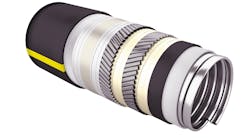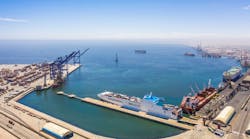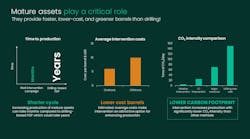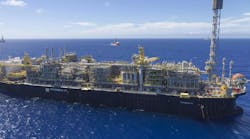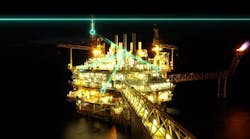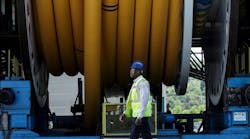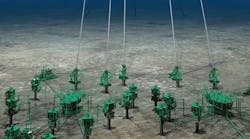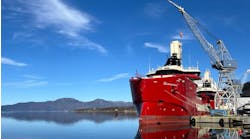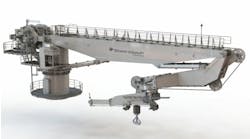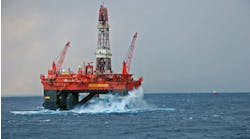Baker Hughes to deploy automated service for production offshore Nigeria
Baker Hughes will implement its Leucipa automated field production service offshore Nigeria for the NNPC Ltd./FIRST E&P joint venture.
The partnership will use the system to optimize well performance and improve efficiency across their offshore operations in the Niger Delta through automating performance analysis, opportunity and scorecards management.
According to Baker Hughes, Leucipa uses data to drive intelligent operations, helping oil and gas operators to minimize inefficiencies, support sound operations, and help recover barrels that would otherwise remain unproduced.
This was one of several announcements issued by the company at its 25th annual meeting with clients in Florence, Italy.
Baker Hughes, ExxonMobil Guyana ink FPSO chemicals contract
Another was a new multi-year contract from ExxonMobil Guyana to provide specialty chemicals and associated services for the Uaru and Whiptail developments in the offshore Stabroek Block.
The award includes all topsides, subsea, water injection and utility chemicals for the Errea Wittu and Jaguar FPSOs, both presently under construction, and set to start production in 2026 and 2027.
Baker Hughes has developed supply chains locally in Guyana to source the chemicals needed for these projects, which will feature up to 20 drill centers and 92 production and injection wells. Each FPSO will have a capacity of 250,000 bbl/d.
Baker Hughes, Hanwha to develop small ammonia turbines
A third announcement covered a joint development and collaboration agreement with Hanwha Power Systems and South Korean shipbuilder Hanwha Ocean for a small-size turbine for ammonia applications.
What is ammonia?
Ammonia is a colorless, pungent gas composed of nitrogen and hydrogen.
Definition by Brittanica
Ammonia is a low-carbon fuel that can be used in enabling the decarbonization of hard-to-abate sectors, including marine, oil and gas, and power.
Definition by Baker Hughes
Hanwha Ocean, foreseen as the main beneficiary of the agreement, plans to adopt the new solution as a propulsion system for its future vessels, supporting maritime decarbonization.
Hanwha has already tested the combustor, with 100% ammonia as the fuel gas, while Baker Hughes completed its initial turbine feasibility studies last year. The two companies plan to complete the full engine test with ammonia by the end of 2027; thereafter, the turbine, with a ~16MW power range, should be commercially available.
Baker Hughes is also examining how its small-size gas turbines could speed the transition from diesel motors to turbines powered by ammonia and hydrogen. The company has tested what it claims is the world’s first 100% hydrogen turbine, with orders already placed and in execution.

